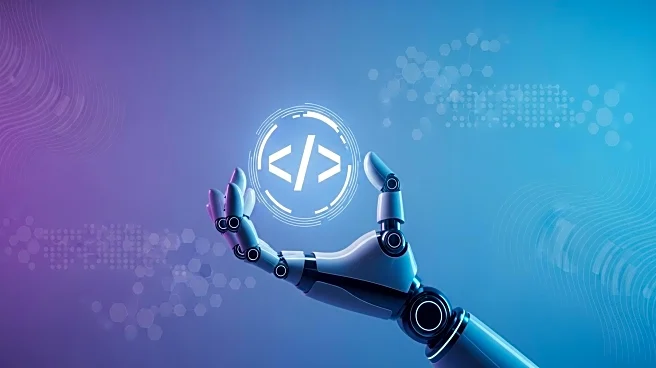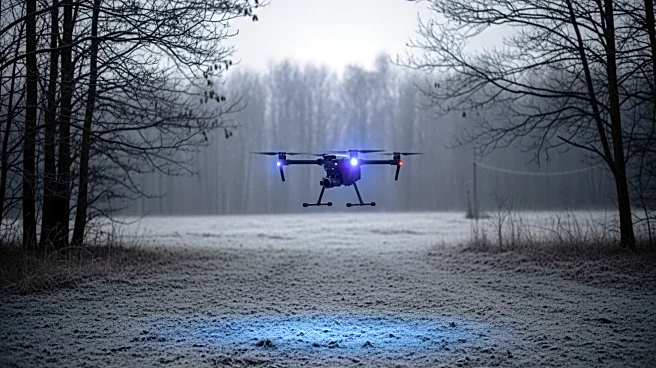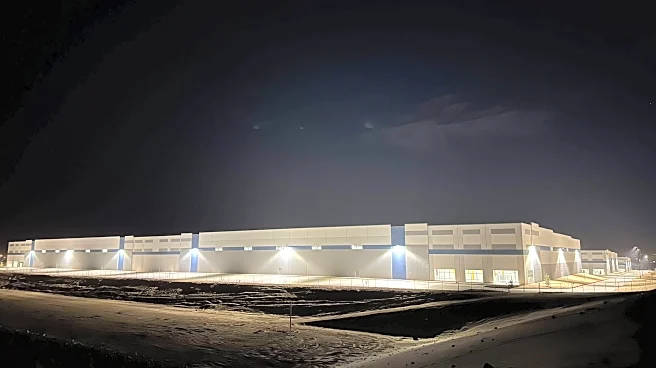What's Happening?
Anthropic has introduced its latest AI model, Claude Sonnet 4.5, which marks a significant advancement in autonomous work and coding capabilities. The model can operate autonomously for up to 30 hours, a notable improvement from its predecessor, Opus 4, which managed only seven hours. Claude Sonnet 4.5 excels in software development tasks, outperforming previous models on benchmarks like SWE-Bench Verified. It is designed to meet practical business needs, particularly in coding and financial services, where it has shown superior performance in tasks such as building financial models and forecasting. The model is positioned to cater to corporate and workplace use, with a focus on task automation.
Why It's Important?
The release of Claude Sonnet 4.5 represents a significant step forward in AI's role in business and software development. By enhancing autonomous capabilities, the model can reduce the need for human oversight, potentially lowering operational costs and increasing efficiency. This development could lead to a shift in how businesses utilize AI, moving from decision support to full task automation. The model's ability to handle complex tasks autonomously may impact employment in sectors reliant on repetitive workflows, as companies might reduce headcount in favor of AI-driven solutions. This shift could redefine workplace dynamics and the nature of professional tasks.
What's Next?
As Anthropic continues to refine its AI models, businesses are likely to explore further integration of such technologies into their operations. The focus will be on maximizing efficiency and reducing costs through automation. Companies may need to adapt their workforce strategies, potentially reskilling employees to work alongside AI systems. The competitive landscape in AI development is expected to intensify, with other companies striving to match or exceed the capabilities of Claude Sonnet 4.5. Stakeholders will be closely monitoring the model's performance and its impact on productivity and employment.
Beyond the Headlines
The introduction of advanced AI models like Claude Sonnet 4.5 raises ethical and societal questions about the future of work. As AI takes on more complex tasks, there is a growing need to address the implications for job displacement and the potential widening of the skills gap. Additionally, the reliance on AI for critical business functions necessitates robust oversight and governance to ensure ethical use and prevent misuse. The long-term impact on industries and the workforce will depend on how these challenges are managed.










